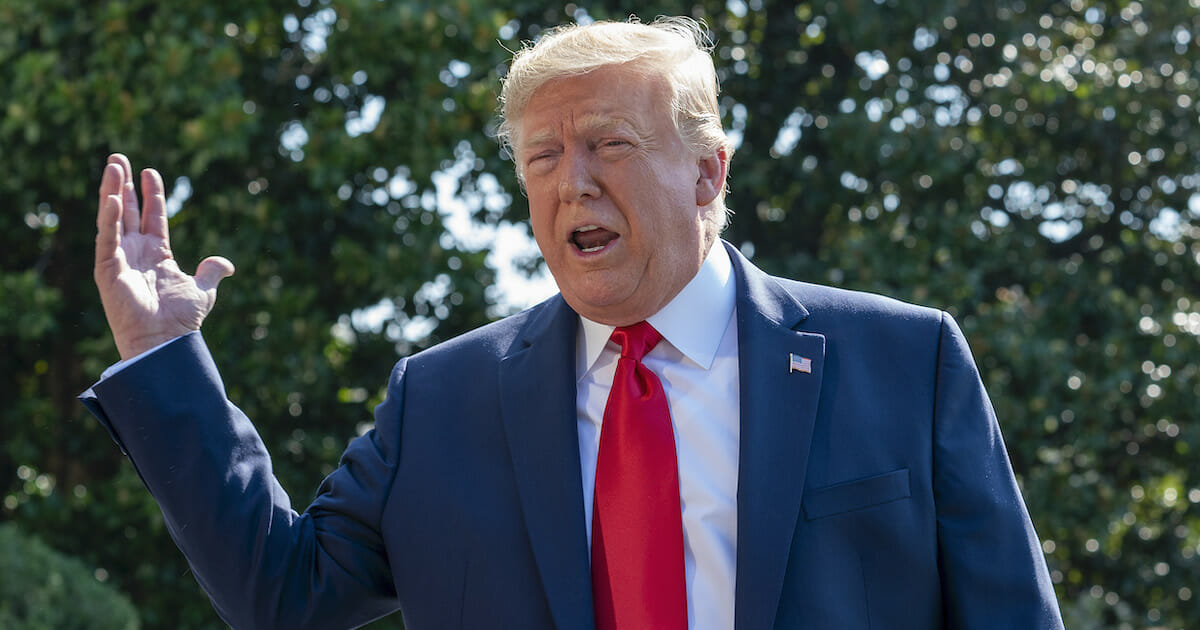
Democrats Suffer Significant Court Defeat in Their Attempt To Impeach President Trump
In the weeks since Robert Mueller’s appearance before two House committees, it’s become increasingly clear that the Democrats who want to see President Donald Trump impeached want it to happen fast.
In fact, House Judiciary Committee Chairman Rep. Jerrold Nadler of New York — arguably the loudest voice for impeachment among the Democrat caucus in the House — set a timeline in which articles of impeachment could be recommended by his committee by late autumn.
On Wednesday, that schedule took a huge hit.
According to The Hill, a ruling by Chief Judge Beryl Howell of the United States District Court for the District of Columbia rejected House Democrats’ attempt to have two separate cases related to the Judiciary Committee’s investigation tried by the same judge, stating they “are too superficial and attenuated” to be designated as related.
In one case, the Judiciary Committee wanted grand jury testimony that was redacted from the Mueller report to be unsealed. In the other, the committee wanted the judge to enforce a subpoena to testify issued to former White House counsel Don McGahn.
McGahn, who was frequently mentioned in the Mueller report — and during Mueller’s testimony, ahough mostly by those asking the questions — has thus far resisted the subpoena.
The Democrats argued that “both seek key evidence for the Judiciary Committee’s investigation into whether to recommend articles of impeachment against President Donald J. Trump for potentially criminal obstructive conduct.”
If articles of impeachment are going to appear on Nadler’s late-fall schedule, it was also imperative that both get decided quickly.
“Justice Department attorneys representing McGahn opposed Democrats’ efforts, arguing that the cases are distinct and casting the committee’s desire to resolve the case quickly as unconvincing because of how long they waited to file the suit to enforce the subpoena for his testimony,” The Hill reported.
And so, two separate judges will be handling the McGahn case and the Mueller case. Judge Howell was already assigned to the Mueller case; Judge Ketanji Brown Jackson, an Obama appointee, was randomly assigned to decide the McGahn case.
Howell’s decision centered on the fact that the two cases were materially different, especially considering that the Mueller case involves whether or not an exception for releasing grand jury testimony should be granted while the McGahn case does not.
“The principle behind the related case rule is that in certain instances, the strong presumption of random case assignment is outweighed by the interests of judicial efficiency in narrow circumstances, such as when virtually identical and highly overlapping issues of fact are likely to be resolved in two cases,” Howell’s decision read.
The Judiciary Committee’s petition, she said, “has failed to meet its burden that departure from the practice of random case assignment is warranted.”
Perhaps most important here is the timeline: At least in the Mueller grand jury testimony case, there won’t be any decision until after Sept. 30.
“The judge had this discretion under the rule and we appreciate the rapid reassignment,” a Judiciary Committee spokeswoman said in a statement, according to The Hill. “We look forward to getting to the merits of our complaint.”
You can imagine the gritted teeth through which that statement was made.
Nadler has made it ridiculously clear that he wants articles of impeachment as soon as possible, no matter what it takes to get them.
“If we decide to report articles of impeachment, we could get to that late in the fall, in the latter part of the year,” Nadler told MSNBC on Aug. 4.
However, as Politico’s Kyle Cheney noted when Nadler made this pronouncement, “that’s an ambitious time frame for a committee that has so far been nearly totally stymied in its effort to force Mueller’s central witnesses to provide information to Congress.”
And then there’s a matter of an impeachment inquiry, which is typically the first step that the Judiciary Committee would take in investigating a president. Nadler doesn’t believe he needs one.
“This is formal impeachment proceedings,” Nadler said when asked about it on CNN last week.
“We are investigating all the evidence, we’re gathering the evidence. And we will at the conclusion of this — hopefully by the end of the year — vote to vote articles of impeachment to the House floor. Or we won’t. That’s a decision that we’ll have to make. But that’s exactly the process we’re in right now.”
The problem is that timeline. If too much time lapses, Democrats are going to seriously lose their appetite for any sort of impeachment vote and subsequent proceedings, particularly since Trump can use them as evidence of the Democrats’ desperation when he’s out on the campaign trail.
This is all assuming, of course, that there’s something in the grand jury testimony or that McGahn says something explosive — or that they’re able to get their hands on either. This sounds like another set of Hail Mary passes in an investigation that seems to have consisted of nothing but since the Mueller report was released.
For all those reasons, Wednesday’s ruling was a lot more consequential than the media is giving it credit for, at least when it comes to impeachment-minded Democrats. The expiration date on this whole charade is fast approaching, which is why you have a House Judiciary Committee chairman rushing like a procrastinating college student trying to assemble a final paper at the last minute.
Much like every other attempt to try to force Donald Trump from office, you get the feeling this attempt is going to get an F, too.
Truth and Accuracy
We are committed to truth and accuracy in all of our journalism. Read our editorial standards.
Advertise with The Western Journal and reach millions of highly engaged readers, while supporting our work. Advertise Today.












